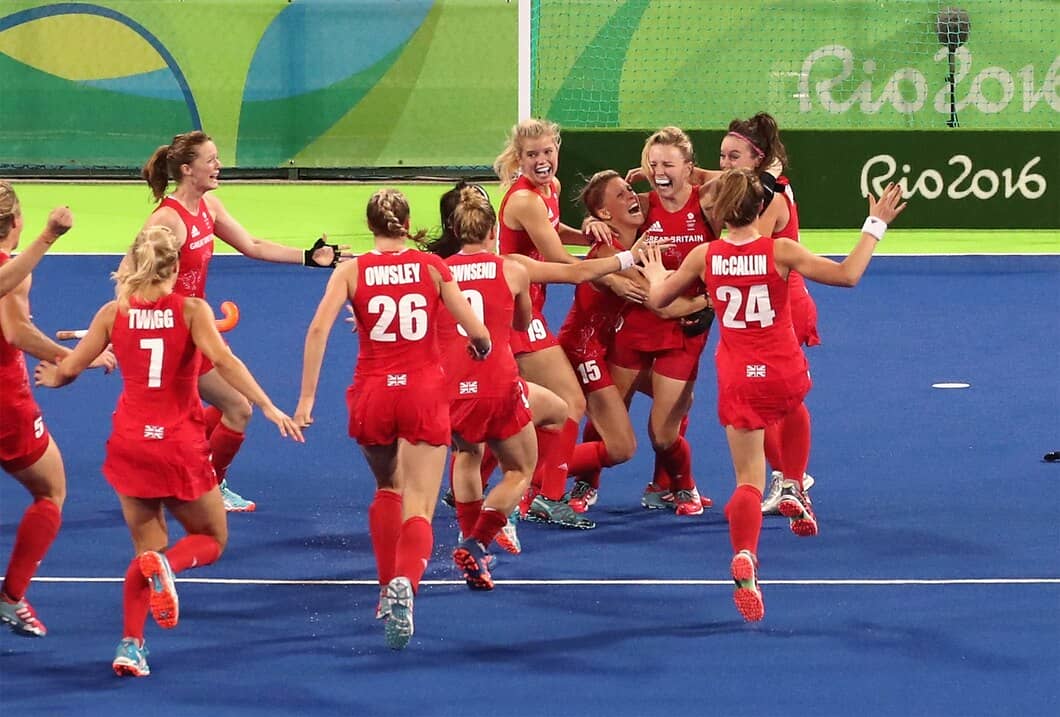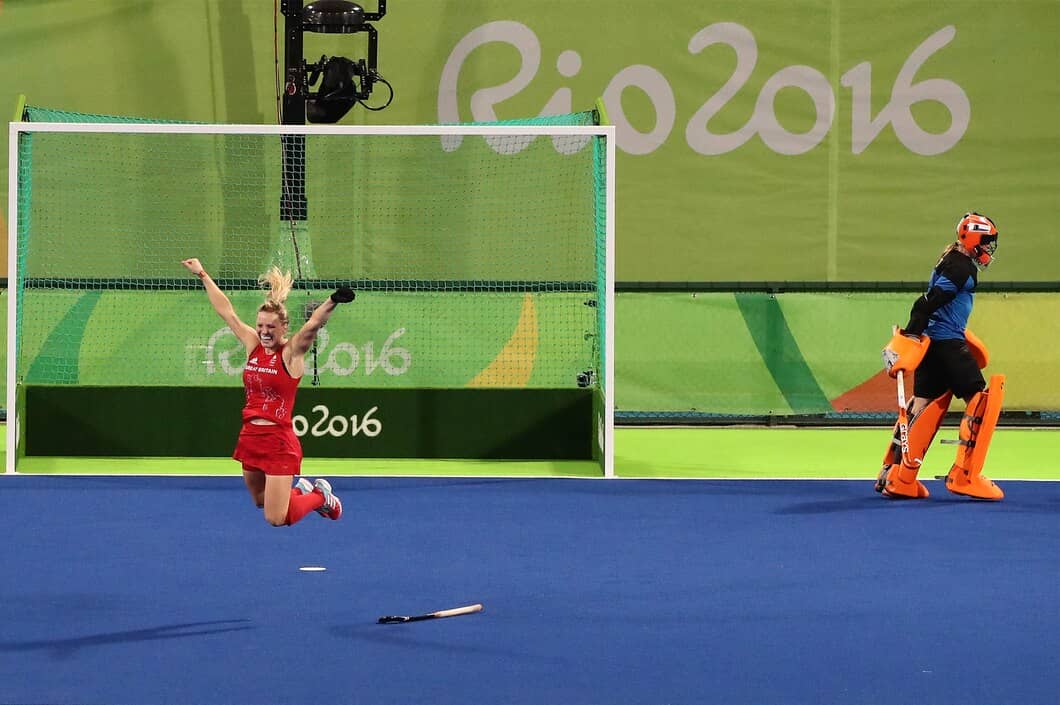
“I was just going through a process,” she said. “We’d done our homework as potential shuffle takers and everyone had prepared by looking at the Dutch goalie and what she did. So I knew what I was going to do. I remember telling myself to not rush, otherwise I could duff it up. I thought, ‘There’s no point being nervous. You’re just on a hockey pitch, it’s just a goal and you’ve done this so many times.

HOCKEY
“We had prepared in the run-up for every scenario. We had rehearsed it. That made the penalties quite simple. If the goalie had made a great save, I couldn’t control that. But it felt like forever, making sure the ball was in the net, before I turned round to celebrate.”The wild scenes that followed revealed true emotion, however. GB had beaten the red-hot favourites, the Netherlands, who were looking to clinch their third consecutive Olympic title.With the game finishing 3-3 at full time, the majority of pressure was suddenly on the Dutch. “Going into the final we were huge underdogs,” Pearne-Webb said. “They had that experience. They had individuals who were technically superstars. We were more reliant on being a team than on individuals.

“We had to defend for large parts of the final, they were on top for long periods. But we were putting away our opportunities to score. Because we had been hanging on, and defending really well, the momentum swung our way. I think the Dutch confidence was getting low. You could see in their body language, after the game, they couldn’t believe that they were in this situation. We were feeling excited.”
GETTY IMAGES
The sheer number of roughly even teams currently competing in women’s international hockey will make their defence tough, too. “Anyone can beat anyone on any given day at the moment. Yes, Holland have been winning all there is to win since the Olympics, but they’re not unbeatable. Holland lost to Australia recently, then Australia lost to Belgium. People are beating each other left, right and centre. Argentina are looking strong, and then there’s New Zealand, China, Germany.”

RIO 2016
Some lessons from Rio 2016 can help Team GB on their way, however. “We had a real mixture of players in the squad,” Pearne-Webb said, “and it was the strength of the squad – not the team – that was the biggest reason that we succeeded. There were 31 girls that trained together for four years, and competition was so high because we all wanted to be on the plane.“Everyone was pushing one another. You also wanted to get your teammate to become better because that’d force you to improve, too. We created a ‘team first’ culture that worked. Every session and minute mattered. It gelled us together. And the mental strength and resilience that came with that was a massive part of why we did so well.”